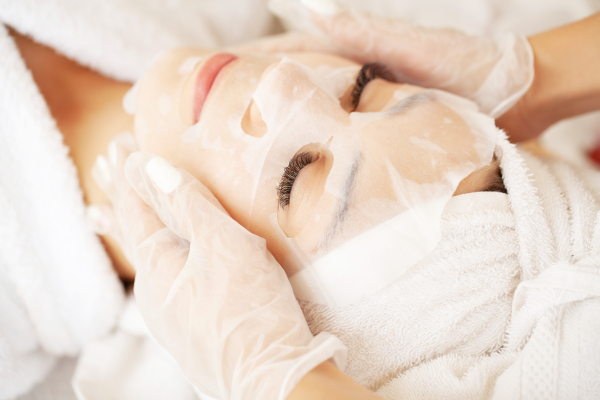- Europa
-
- Amstetten(7)
- Bad Schallerbach(1)
- Baden(4)
- Berg(1)
- Braunau am Inn(5)
- Bregenz(3)
- Bruck an der Mur(1)
- Graz(4)
- Hartberg(1)
- Innsbruck(5)
- Kemmelbach(1)
- Kitzbühel(4)
- Klagenfurt(5)
- Krems an der Donau(1)
- Kufstein(5)
- Leibnitz(1)
- Lienz(1)
- Liezen(1)
- Linz(5)
- Oetz(1)
- Punitz(1)
- Radstadt(1)
- Salzburg(5)
- St Polten(2)
- Steiermark(1)
- Steyr(1)
- Steyregg (1)
- Traun(3)
- Vienna(26)
- Villach(5)
- Völkermarkt(1)
- Wels(5)
- Wien(1)
- Wiener Neustadt(4)
-
- Aalst(1)
- Aarschot(2)
- Affligem(1)
- Anderlecht(5)
- Antwerp(11)
- Antwerpen(1)
- Arlon(6)
- Ath(2)
- Aubange(5)
- Bastogne (2)
- Blankenberge (1)
- Bruges(5)
- Brussels(15)
- Charleroi(5)
- Deinze(3)
- Dendermonde(1)
- Diest(2)
- Etterbeek(5)
- Geel(1)
- Genk(5)
- Gent(6)
- Geraardsbergen(1)
- Grimbergen (2)
- Hasselt(5)
- Heusden- Zolder(2)
- Ieper(1)
- Izegem(1)
- Knokke(4)
- Kortrijk(2)
- La Louviere(2)
- Leuven(5)
- Liege(4)
- Limburg(4)
- Lommel(1)
- Mortsel(1)
- Oostende(1)
- Turnhout(1)
-
- Chelyabinsk(1)
- Dubna(4)
- Gelendzhik(1)
- Irkutsk(1)
- Kaliningrad(1)
- Kazan(4)
- Krasnodar(3)
- Krasnoyarsk(1)
- Maykop(1)
- Moscow(50)
- Nizhny Novgorod(4)
- Novosibirsk(1)
- Omsk(1)
- Penza(1)
- Rostov-on-Don(2)
- Saint Petersburg(13)
- Samara(1)
- Saratov(1)
- Serpukhov (2)
- Sevastopol(3)
- Sochi(5)
- Stavropol(1)
- Surgut(1)
- Tyumen(2)
- Ufa(2)
- Vladivostok(3)
- Yekaterinburg (11)
-
- Alicante(8)
- Barcelona(113)
- Benalmadena(1)
- Benidorm(7)
- Castellón de la Plana(1)
- Denia(1)
- Estepona(1)
- Fuengirola (3)
- Ibiza(49)
- Jerez de la Frontera(1)
- Lanzarote(1)
- Las Palmas de Gran Canaria(5)
- Madrid(57)
- Malaga(9)
- Marbella(48)
- Murcia(1)
- Oviedo(1)
- Palma de Mallorca(48)
- Puerto Banus(3)
- Seville(1)
- Tarragona(1)
- Tenerife(7)
- Torrevieja(3)
- Valencia(9)
- Vigo(1)
- Zaragoza(1)
- Worldwide
Understanding Fabric and Hydrogel Face Masks: Differences and Benefits
 In the quest for flawless skin, face masks have become essential tools in our beauty routines. Among the various types available, fabric and hydrogel masks stand out for their unique qualities and effectiveness. Let’s delve into the distinct characteristics and advantages of these two popular face mask types.
In the quest for flawless skin, face masks have become essential tools in our beauty routines. Among the various types available, fabric and hydrogel masks stand out for their unique qualities and effectiveness. Let’s delve into the distinct characteristics and advantages of these two popular face mask types.Fabric Face Masks: Traditional Yet Effective
Fabric face masks, also known as sheet masks, are composed of a flexible fabric or fiber material infused with a nourishing serum. These masks are designed to adhere closely to the face, allowing for enhanced absorption of the serum's active ingredients.
How They Work: Fabric masks are pre-soaked in serums containing various beneficial components such as vitamins, hyaluronic acid, and botanical extracts. When placed on the skin, the fabric forms a barrier that helps to lock in moisture and enhance the penetration of these ingredients.
Advantages:
Convenience: Fabric masks are typically pre-cut to fit various face shapes, making them easy to use without any need for preparation.
Instant Hydration: They offer an immediate boost of hydration, which can be particularly beneficial for dry or dehydrated skin.
Even Application: The mask’s fabric ensures an even distribution of serum across the face, helping to address specific skin concerns more effectively.
Considerations:
Single Use: Most fabric masks are designed for one-time use, which can be less environmentally friendly.
Fit Issues: Depending on the design, some fabric masks may not fit all face shapes perfectly, potentially leading to less effective coverage.
Hydrogel Face Masks: Cutting-Edge Hydration
Hydrogel masks represent a more advanced approach to skincare. These masks are made from a gel-like substance that provides a cooling and soothing effect upon application. They are often praised for their ability to deliver intense hydration and target specific skin issues with precision.
How They Work: Hydrogel masks are created from a blend of water and polymers, which form a gel that closely adheres to the skin. This gel base helps to hydrate and nourish the skin deeply while maintaining a comfortable fit.
Advantages:
Deep Hydration: The gel’s water-rich composition allows for better hydration, penetrating deeply into the skin layers.
Longer Wear Time: Hydrogel masks typically remain moist longer than fabric masks, providing extended benefits and comfort.
Cooling Effect: They often provide a cooling sensation that can help soothe irritated or sensitive skin.
Considerations:
Cost: Hydrogel masks can be more expensive than fabric masks due to their advanced formulation and ingredients.
Application: Some users might find hydrogel masks trickier to apply, as the gel can be slippery.
Choosing the Right Mask for Your Skin
Selecting between a fabric and hydrogel mask depends largely on your specific skin needs and preferences. Fabric masks are ideal for quick hydration and convenience, while hydrogel masks offer deeper moisture and a more luxurious feel.
For Fabric Masks:
Ideal for daily use or quick hydration boosts.
Best suited for those who prefer a straightforward, easy-to-apply option.
For Hydrogel Masks:
Perfect for more intensive treatments and prolonged hydration.
Recommended for individuals seeking advanced skincare solutions with a cooling effect.
Both types of masks can be valuable additions to your skincare routine. Understanding their differences and benefits can help you make an informed choice that enhances your skin's health and appearance.









